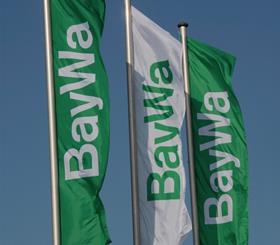
BayWa has announced a tie-up with Abu Dhabi-based Al Dahra Holding LLC, a leading international agribusiness company, to set up a ground-breaking project in the UAE.
The new entity, Al Dahra BayWa LLC, is a €30m project that will focus on the production of premium vegetables such as tomatoes using the latest greenhouse technologies, as well as in the marketing of produce in the seven-emirate federation and potential regional markets.
This contract is subject to approval by competition authorities in the UAE.
Spending power in the UAE on fruit and vegetables from regional and sustainable production is strong and the country has a healthy market for premium fruits and vegetables, the groups noted.
“We are pleased to make this announcement which comes as part of the strategy of food security in the UAE and contributes to consolidating our initiatives in that direction,' said HE Khadim Abdulla Al Derei, vice-chairman & managing director of Al Dahra Holding. “Al Dahra BayWa LLC has a great potential for growth in the region, and we are confident that this collaboration has the elements of success in this continuously growing business segment.'
The joint venture is part of the specialties strategy in BayWa's Agriculture Segment.
'Through our trade network, we have identified the United Arab Emirates as a very profitable market with a large growth potential', explained Klaus Josef Lutz, CEO of BayWa. 'On an international scale, we are observing a growing interest to close the value chains between growers and consumers – this development is reflected in our decision-making.'
Lutz emphasised that BayWa was not referring to standard products like wheat, corn and soy when talking about the expansion of its value chain, but was instead focusing exclusively on special products for a profitable market segment in regions with strong growth in order to diversify its agricultural business.
The climate-controlled greenhouse will be constructed on a site with an area of 15ha. In a first step, the venture will produce up to 5,000 tonnes of premium tomatoes per year, to be marketed to local food retailers.
In the controlled climate of the facilities, vegetables can be harvested throughout the year. Water-efficient technologies will be used, and compared to traditional greenhouses, the system will save 60 per cent of water used for irrigation.



